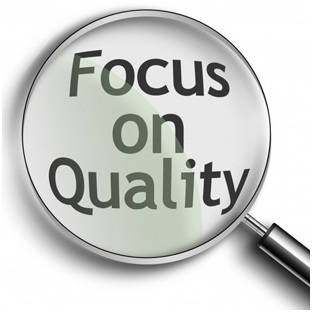
Having specified project deliverables, there are a number of factors by which project performance will be measured by the client. Timing and cost are two of these, though perhaps the most important is the standard to which the project is completed.
Using tools such as cost benefits analysis and taking a consistent approach to quality management throughout the project lifetime, the project manager will be best placed to deliver according to the goals set out in the project scope document. Here are six objectives of quality management, each one a reason for making quality management a top priority:
- To ensure a ‘fit-for-purpose’ stamp
When focus is firmly on quality concerns throughout the project lifetime, the client’s expectations are more likely to be met.
- To drive quality throughout
A suitable quality management process will drive performance from start to finish. It helps keep contractors and sub-contactors on track to satisfactory completion, and ensures materials are in keeping with quality and cost issues.
- To identify fit-for-purpose standards
By measuring quality against consistent and agreed metrics, the project manager will ensure that project specifications and required standards are identified and worked to.
- To empower stakeholders in delivery of quality
By applying a consistent approach to quality management, and defining the metrics by which quality will be delivered, stakeholders will be better empowered to take responsibilities where necessary. Elements such as quality management policies, processes, and reviews should be understood by all when driving task and project quality.
- To enhance continuous improvement
By review and open quality practices, performance and quality should improve continuously – and not only to the benefit of the current project but to all those that follow. This will include the identification of training needs for specific roles and duties.
- To reduce the need to rework
An approach that leaves quality measurement until the end of the project is (almost) certain to result in the need for reworking of specific project deliverables. By monitoring and managing throughout, the project manager will reduce this need, manage time more efficiently, and maintain realistic client expectations of time and cost delivery.
Quality Management in three steps
In order to achieve all the objectives of quality management, the project manager should work to a three step process:
- Plan and implement quality processes and controls
- Ensure compliance with project standards and specifications (quality assurance)
- Perform quality control practices at every stage toward project completion

Trackbacks/Pings